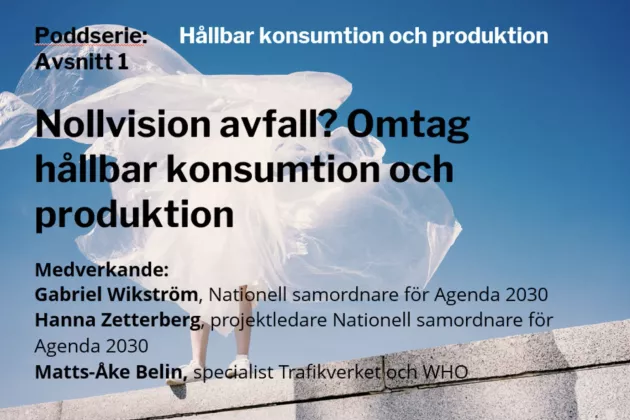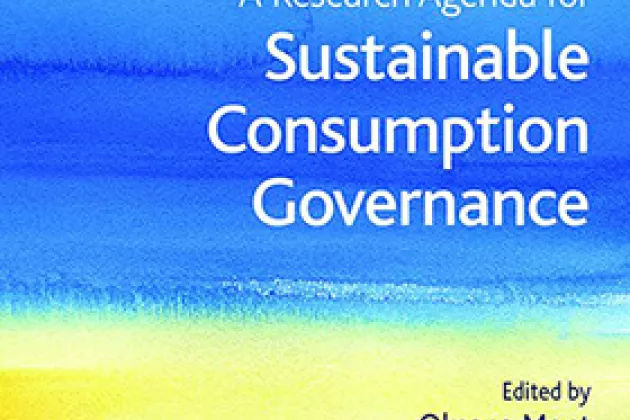The Swedish National coordinator för Agenda 2030 has initiated a podcast series on sustainable consumption and production. In the podcast series of ten episodes, different perspectives on sustainable consumption and production are presented based on the idea that a "zero vision for waste" could be a tool that controls everything from the design of products to the disposal of waste.
Participating in one of the episodes are the researchers Maria Wolrath Söderberg, lecturer in rhetoric who researches climate argumentation at Södertörn University and Oksana Mont, professor in sustainable consumption governance, at the International Institute for Industrial Environmental Economics at Lund University, and researcher in Mistra Sustainable Consumption programme and 1,5° sustainable lifestyles research project.
They discuss the relationship between the individual and society when it comes to changing our behavior patterns. Oksana highlights that consumption is often associated with just purchasing situation and context, while in reality it is a complex system of institutional and structural settings. Something as simple as planting in the garden becomes a consumption-driven activity when focus shifts towards purchasing of branded tools, hunt for status linked to the choice of garden furniture and garden machinery. Similarly, she believes that a positive and sustainable activity of skiing can easily become unsustainable if all the equipment and clothing, ski resorts and infrastructure around it are counted in. This demonstrates that “it is difficult for individual consumers to change their behaviour and engage in sustainable practices when these practices are very much consumptions-driven" says Oksana Mont. But she also highlights the fact that we can change and adapt quickly, not least in times of crisis as demonstrated by both the pandemic and the war against Ukraine.





